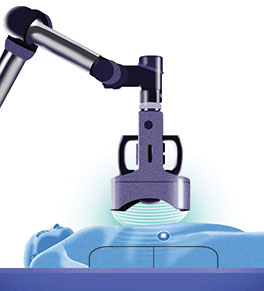
Whipple Procedure
UCI Health pancreas surgeons are among the nation's most experienced in performing the Whipple procedure, the most common surgery for pancreatic cancer.
The Whipple procedure, or pancreaticoduodenectomy, is the most common surgery for pancreatic cancer, and can also be performed for cancer of the common bile duct and the duodenum.
Our approach to the whipple procedure
UCI Health pancreatic surgeons perform a higher volume of Whipple procedures than any other medical system in the region, with a far lower mortality rate.Our multidisciplinary team works with you every step of the way, from diagnosis, through surgery and recovery, so you know what to expect.
How the whipple procedure is used to diagnose cancer
Along with treating the pancreatic cancer you have already been diagnosed with, pathologists examine tissue samples during the surgery for cancer cells, providing "frozen section" results to the surgeon. Final pathology results take up to two weeks.
Benefits of the whipple procedure
Along with a potential cure for pancreatic cancer, benefits of the Whipple procedure include:
- Higher survival rates from pancreatic cancer
- Improvement quality of life, including reduction of pain, digestive problems and jaundice
- Maintaining digestive function and insulin production.
What to Expect During the Whipple Procedure
Surgery
The Whipple procedure removes the head of the pancreas, gallbladder, duodenum, part of the stomach, bile duct and nearby lymph nodes. The remaining stomach, pancreas, and bile duct are then connected to the jejunum, restoring digestive function, allowing pancreatic juices, bile and food to pass through the body.
Your surgeon will go through every step of the preparation process with you so that you know exactly what to expect before, during and after the procedure.
Recovery
At UCI Health, we work to streamline the recovery process, so that you can return home and resume your daily activities as soon as possible. Our team of nurses work closely with your surgeon to inform them of your recovery in real time and catch any complications early.
Our oncologists examine your reaction to different therapies in order to find the best treatment option for you.
Our discharge center ensures that you have everything you need once you go home, including in-home therapy, nutrition consulting and more.
Blood Transfusion
Because of the magnitude of the Whipple procedure, you may require a blood transfusion during the surgery. Our comprehensive screening of all UCI Health blood products before use makes the risks associated with transfusions very low.
However, if you are concerned, please discuss your options with us. You may be able to donate your own blood prior to surgery.
What Happens After My Whipple Procedure?
After your release, you will need to schedule regular check-ups for potential complications, including:
- Infection, which can be managed with drains, antibiotics and proper nutrition
- Delayed gastric emptying, which usually last seven to 10 days, but can last up to a few weeks
You may also experience pain following the procedure. Our pancreatic cancer specialists are part of a multidisciplinary UCI Health team that includes pain management specialists. They work with you to find the best methods to manage your pain after surgery and to assess your coping and pain medication tolerance daily.
If long-term pain management is needed, a palliative care specialist may be consulted.
Why choose UCI Health for the whipple procedure?
Our UCI Health pancreas surgeons are among the nation's most experienced at performing Whipple procedures successfully.
One of the most complex and demanding surgeries in medicine, the Whipple procedure usually takes six to 12 hours to complete. Your chances of responding favorably to the procedure fare better at a hospital where at least 10 of the procedures are performed each year.
The pancreas specialists at UCI Health perform around 60 Whipple surgeries a year. Dr. David K. Imagawa is a leader in minimally invasive approaches to pancreas surgery. His expertise draws patients from throughout the West Coast.
We welcome referrals from community physicians
Simply complete and fax the appropriate referral form to the Chao Digestive Health Institute.
We look forward to serving you and your patients.
Featured Blog Posts

Dissolving liver tumors with sound waves

Young dancer triumphs over rare pancreatic tumor






